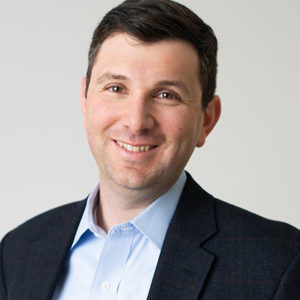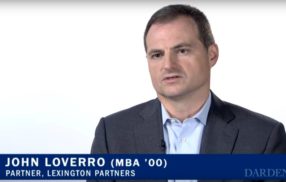
Mitigating Risk and Finding Opportunity in Emerging Markets
By Tom van der Voort

Zach Ruchman (MBA ’18)
Zach Ruchman (MBA ’18) starts with a simple question when evaluating a prospective investment in an emerging market: “Why should we be employing this dollar anywhere other than the U.S.? What does this incremental dollar get us?”
Having served as a vice president for private equity investing at both BlackRock and RockCreek since graduating from Darden, Ruchman knows that his investors need a specific, obtainable goal to embrace the additional risk that typically comes with emerging markets.

John Yonemoto
John Yonemoto, co-founder and chief investment officer at Albright Capital Management, brings more than three decades of experience in the field. For him, finding opportunity in emerging markets usually means ignoring a nation’s GDP growth, which simply doesn’t correlate with investment return. Even worse, chasing a hot emerging market can often leave investors with a deal that doesn’t make sense.
“Valuation matters a lot. What’s important is finding good deals, at reasonable valuations that will let you make money. . . . In many cases, we try to look for countries that are not popular.”

Darden Professor Felipe Saffie
Ruchman and Yonemoto joined Darden Professor Felipe Saffie for the Darden Private Equity Club’s Emerging Market Summit in early February. Sebastian Izurieta and Lorenzo Mosig of the Class of 2023 organized the session, and Saffie moderated the discussion, which focused largely on currency risk and political risk.
To mitigate the substantial risk of currency devaluation, Yonemoto strongly prefers companies that generate dollar revenues, finding currency risk too expensive to hedge. Ruchman suggests investing in several different nations in a region if the countries are sufficiently small. Neither strategy, however, can eliminate the need to accurately underwrite the risk.
Join us on February 24 for the inaugural Darden Emerging Markets Conference on the Darden Grounds in Charlottesville
Political risk can be even trickier. If governments or policies change, projected returns can simply disappear. Wars and other unpredictable tragedies are nearly impossible to account for.
To deal with these challenges, Yonemoto and Ruchman advise avoiding industries that are important to the government. Investing in oil in Nigeria, for instance, is essentially “doubling down on political risk,” says Yonemoto. The less important the sector is to the government, the less susceptible it is to political risk. Commodities are almost always strategically important to a nation and deserve an extra level of scrutiny.
Identifying exit strategies at the beginning also adds flexibility to deal with political risk. Exit options in emerging markets are not plentiful, says Yonemoto, but creditor rights have generally improved over time, so structuring an investment as credit can deliver an equity-like return with a chance to get your money back should a major change occur.
Ruchman returns to the fundamental need to understand all aspects of any emerging market opportunity. You need to go in person to evaluate the market, the culture, the opportunity, and most importantly the people involved, he says. “The hardest part of the job is evaluating that human element. . . . That’s the art.”
The University of Virginia Darden School of Business prepares responsible global leaders through unparalleled transformational learning experiences. Darden’s graduate degree programs (MBA, MSBA and Ph.D.) and Executive Education & Lifelong Learning programs offered by the Darden School Foundation set the stage for a lifetime of career advancement and impact. Darden’s top-ranked faculty, renowned for teaching excellence, inspires and shapes modern business leadership worldwide through research, thought leadership and business publishing. Darden has Grounds in Charlottesville, Virginia, and the Washington, D.C., area and a global community that includes 18,000 alumni in 90 countries. Darden was established in 1955 at the University of Virginia, a top public university founded by Thomas Jefferson in 1819 in Charlottesville, Virginia.
Press Contact
Molly Mitchell
Associate Director of Content Marketing and Social Media
Darden School of Business
University of Virginia
MitchellM@darden.virginia.edu








